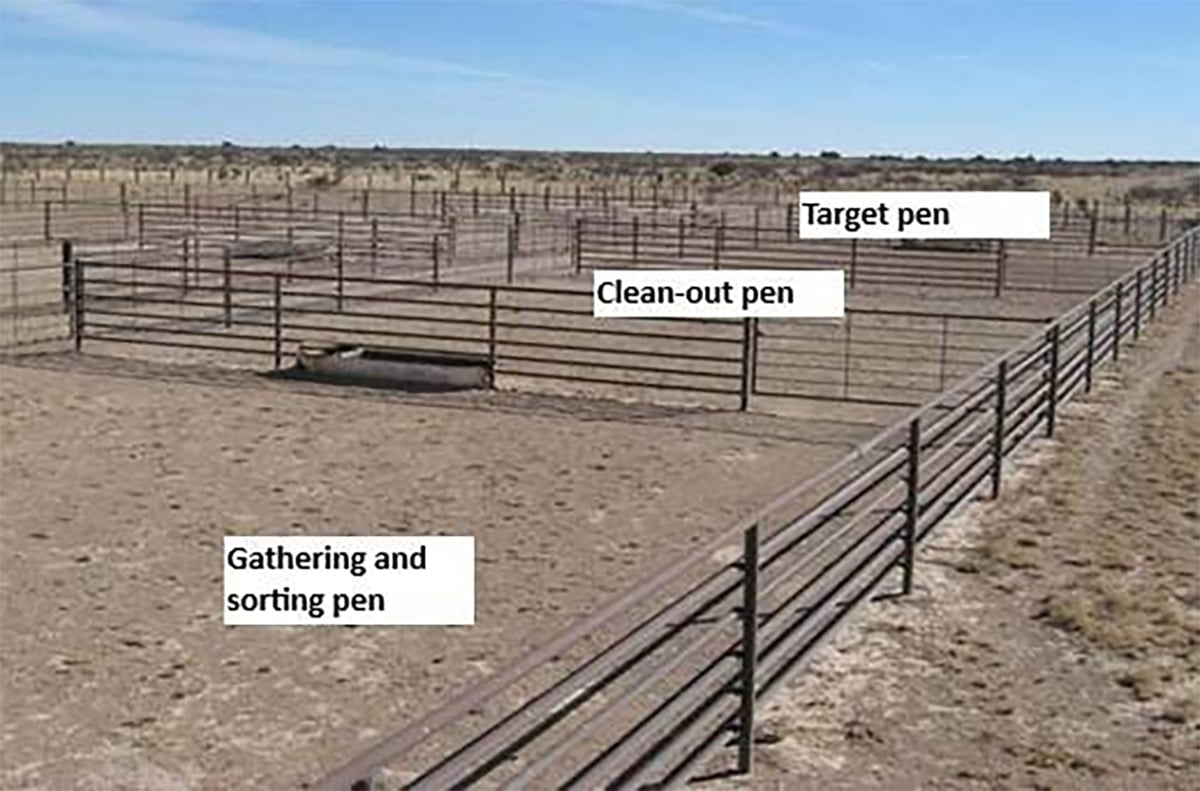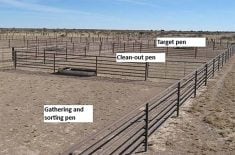RED DEER – A price for water? Those are fighting words for many southern Alberta farmers and ranchers.
Water is scarce on the dry southern plains of Alberta. When a 40 cent per acre-foot charge was proposed last year during hearings over new water legislation, farmers protested so intensely the idea was shelved.
But one university economist says as water becomes more scarce, it should have a cost.
“I don’t see how one can have conservation through solely moral persuasion,” said Terry Veeman of the University of Alberta. An expert on water issues, he spoke at the Agricultural Economists Association convention in Red Deer recently.
Read Also

Teamwork and well-designed handling systems part of safely working cattle
When moving cattle, the safety of handlers, their team and their animals all boils down to three things: the cattle, the handling system and the behaviour of the team.
“Is water a commodity or not? It is for many purposes and maybe not for some. People say it is priceless.”
For purposes like bathing, recreation and irrigation, water should have an economic dimension, he suggested.
Irrigation is one of the largest consumers of water in western North America. In Alberta, farmers pay for the delivery of water but not for the amount used. With new legislation being drafted, Veeman said the issue of water pricing as a commodity must be addressed.
The new water management act is scheduled to reach the legislature this fall and could be law by the spring of 1996.
Many farmers don’t have licences to withdraw water. Under a new act they might need licences if they exceed the proposed 500,000 gallons for domestic use. Holding a licence could also protect rights to water if the local supply has been over-allocated. This could happen in cases of poorly planned land developments that draw too heavily on the water supply.
In an irrigation district, the district holds the water licence and farmers are charged a fee for delivery of water to their farms. Veeman said perhaps the farmers, rather than the district, should hold the licences.
“I think it should be a decision at the farm level whether you are going to use water to irrigate,” said Veeman. He acknowledges districts would not likely want to relinquish water licences.
The new act should address whether a licensee has the ability to transfer that right to someone else.
Water rights are tied to the land. Most prefer that tradition to continue because access to water adds value. Veeman doesn’t think this generation is ready for transferrable water rights.
Setting a price on water and allowing people to transfer their water rights could lead to the export of water to the United States, some critics say, but Veeman thinks this is unlikely.
He also questioned whether the same water policy should apply to the entire province when water is scarce in the south and plentiful in the north.
“The scarcity is not so much one of nature, but imposed by man’s institutions, his lack of pricing and his lack of reform to the water rights system. If we have those things in place we can do a far better job of allocating this scarce resource.”















